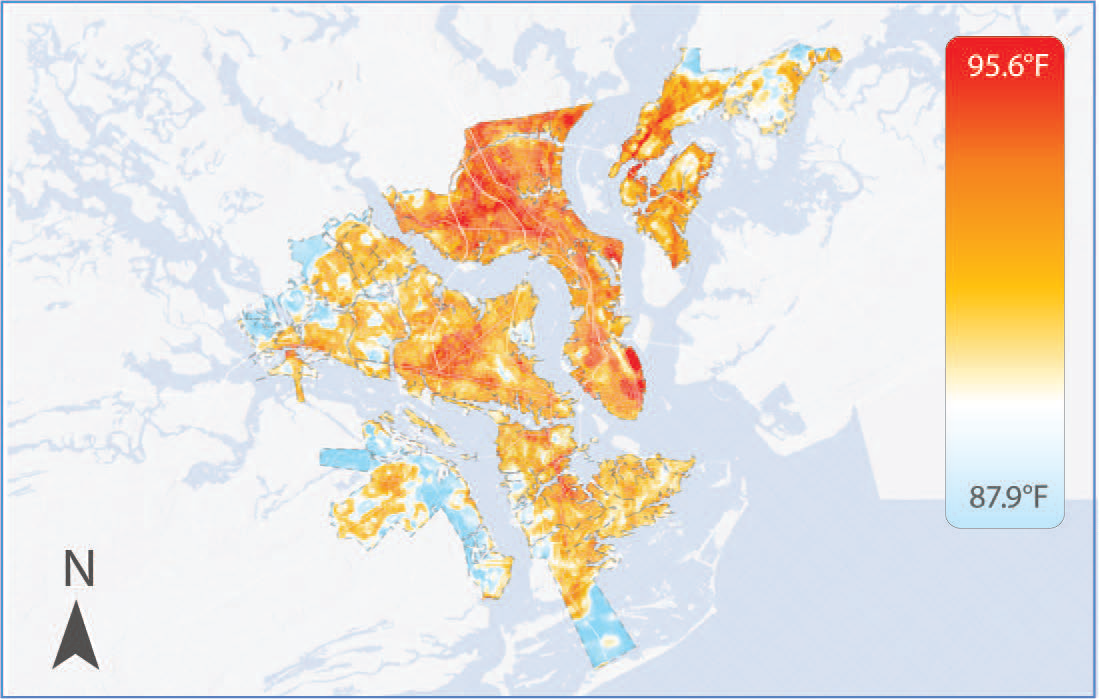Climate Resiliency and Environmental Sustainability Studies (CRESS) Minor
The minor in climate resiliency and environmental sustainability studies is an interdisciplinary minor designed to help undergraduate students gain climate and environmental science literacy; develop an understanding of the interactions between climate and the natural environment and an appreciation of sustainability from a variety of perspectives such as business and engineering; and create and/ or participate in a project related to local environmental and sustainability efforts. Students pursuing the minor will have the opportunity to take a variety of classes addressing climate resiliency and environmental sustainability studies culminating in a capstone course. The capstone course will provide the students a chance to build upon their previous coursework in the minor through a semester long research project, service-learning activity or internship.
This minor is housed within The Citadel’s Physics Department and is closely tied to the Biology Department, allowing students to gain interdisciplinary insights into climate science. The minor is also associated with the Near Center for Climate Studies, a center dedicated to research and innovation in climate science, and led by Prof. Scott Curtis, a faculty member in the Physics Department.


Potential Students
The minor may be appropriate for undergraduate students from all five schools who are interested in climate, the environment and sustainability. Possible areas of interest could include climate hazard mitigation, climate adaptation, sustainable agriculture, environmental degradation, supply chain sustainability, environmental history or environmental economics.
Requirements
To complete a minor in sustainability and environmental studies, students must take a minimum of 15 credit hours from the approved list of courses listed below. At least 9 credit hours must be completed at The Citadel.
Required Courses
Must take both of the following:
- BIOL 209 – Environmental Science Credit Hours: 3
- PHYS 343 – Applied Climatology Credit Hours: 3
Must take:
- Capstone Course: Including EDUC 409 – Special Topics in Education, BIOL 320 – Intern Research, or similarly approved high-impact experiences.
Optional Courses
Must take TWO of the following:
- SCMT 302 – Quality Management Credit Hours: 3
- SCMT 402 – Purchasing & Materials Management Credit Hours: 3
- SCMT 304 – Project Management Credit Hours: 3
- MGMT 311 – Human Resource Management Credit Hours: 3
- CIVL 322 – Introduction to Environmental Engineering Credit Hours: 3
- CIVL 408 – Water and Wastewater Systems Credit Hours: 3
- MECH 417 – Renewable Energy Credit Hours: 3
- ELEC 427 – Energy Systems Engineering Credit Hours: 3
- HIST 392 – Special Topics in History Credit Hours: 3 *** (Environmental History)
- PSCI 433 – Topics in International Politics Credit Hours: 3 *** (Global Environment)
- BIOL 292 – Leadership for Environmental Sustainability Credit Hours: 3
- BIOL 314 – The Vascular Flora of South Carolina Credit Hours: 4
- BIOL 406 – Ecology Credit Hours: 4
- BIOL 407 – Conservation Ecology Credit Hours: 3
- BIOL 409 – Marine Biology Credit Hours: 4
- BIOL 414 – Environmental Physiology Credit Hours: 4
- BIOL 419 – Economic Botany Credit Hours: 3
- BIOL 412 – Special Topics in Biology Credit Hours: 4 ***
- BIOL 421 – Toxicology Credit Hours: 4
- BIOL 426 – Freshwater Biology Credit Hours: 4
- PHYS 243 – Meteorology for Aviators Credit Hours: 3
- EART 201 – Introduction to Earth Science Credit Hours: 4
- EDUC 409 – Special Topics in Education Credit Hours: 3 ***
Notes:
*note only one course can be counted for both a major and a minor
**CIVL 322 and CIVL 408 can be appropriate for non-CE STEM majors. These non-CE STEM majors must complete CHEM 151/CHEM 161 as a pre-requisite for CIVL 322 and CIVL 322 as a prerequisite for CIVL 408. The CE department must be notified prior to attempting registration to open the course to non-CE STEM majors.
***Special Topics Courses will require approval from the Program Director on a case-by-case basis.
